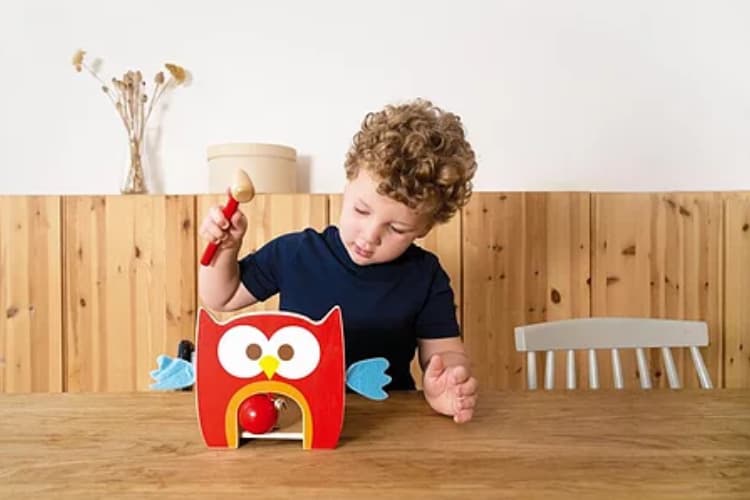
Parents want to give their children everything. After all, how can you resist a cute request of your child having what they desire? But what happens if these cute little requests happen more often? Despite wanting to give your kids everything, one of the greatest gifts you can give is to literally give less...to force decision-making and awareness among all their choices. Yes, it’s not easy to watch your kids struggle with not getting their request granted—but in the end, it does breed gratitude. And there is no question that these lessons are most effective if you start early and consistently through their early years.
Quality of play is measured by how long a child stays focused on one toy and how they can use their imagination to play with that toy in different ways. Attention plays a huge role at playtime as this keeps a child engaged. On the contrary, distractions can cause a child to lose focus and become disinterested in play as well. Too many toys in the environment or TV playing in the background are some of the significant distractors that can shorten the duration of play with a single toy.
When kids have too many toys, they will naturally become more irresponsible and take less care of what they have. Since they have too much options and replacements ready, they will not learn to value what's already available. If you have a child who is constantly damaging their toys, it's a trick to just take a bunch away. They will quickly learn from that.
Playing with toys is certainly good for a child's learning journey. In fact, it's essential. But you can also take this time to help your child develop a greater love for other interests. Fewer toys allows your children to love books, music, coloring, painting and other potential skills. This will also keep them away from getting used to an unhealthy amount of screen time (we can agree on this one for sure)!
Sounds counter-intuitive? Hear us out. While some believe that more toys will result in less fighting because there are more options available, we believe that the opposite is true far too often. Siblings argue about toys. And every time a new toy is introduced into the relationship, you give them another reason to establish their “territory” among the others. On the other hand, siblings with fewer toys are forced to share, collaborate, and work together.
Having fewer toys accessible at a time helps create an aspect of novelty for a child and sparks their interest and curiosity in their toys since they have not been in their environment for a while. You also spare expenses from always having to buy new things just to keep them interested.
Speaking of which, did you know that you can do toy rotations with us? As you become a member of the KIDDOS Toys Club, your child can receive a bag of new toys which you can then return after a month in exchange of a new bag. This keeps your child engaged without toys having to pile up in the storage!